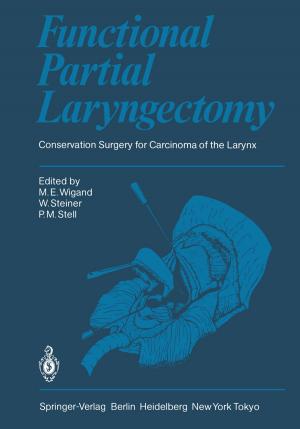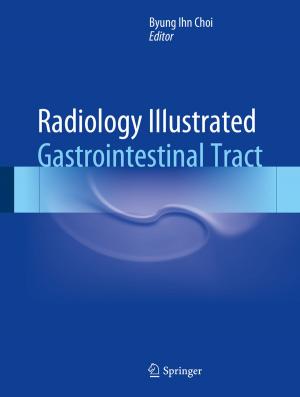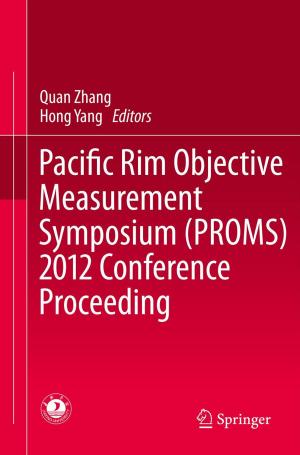The Fundamentals of Paleohydrogeology of Ore Deposits
Nonfiction, Science & Nature, Science, Earth Sciences, Mineralogy| Author: | Evgeny A. Baskov | ISBN: | 9783642716713 |
| Publisher: | Springer Berlin Heidelberg | Publication: | December 6, 2012 |
| Imprint: | Springer | Language: | English |
| Author: | Evgeny A. Baskov |
| ISBN: | 9783642716713 |
| Publisher: | Springer Berlin Heidelberg |
| Publication: | December 6, 2012 |
| Imprint: | Springer |
| Language: | English |
This book deals with the problems and methods of paleohydrogeolo gy in relation to ore deposit studies. It presents a description of dif ferent techniques used in the course of structural-paleohydrogeologi cal, paleo hydrogeochemical and paleo hydro geothermal investiga tions. It also provides itlformation on the regular, regional patterns of formation and subsequent distribution of ground water within dif ferent shells of the Earth. The main aspects of metal content of ground water and contemporary processes of ore genesis are discuss ed. Ore deposits are classified according to paleohydrogeological con ditions under which they were formed. The readers are acquainted with paleohydrogeological analysis of these conditions for different types of ore deposits, namely (1) ore deposits formed in artesian basins, in which sedimentary rocks were predominant both at the time of magmatic activity and in the periods free of this activity; (2) ore deposits formed in artesian, ad artesian basins (and admassifs) characterized by extensive development of volcanic rocks and magmatic activity; (3) ore deposits that originated in hydrogeological massifs (and admassifs) in the process of formation of linear weather ing crusts. This book, which should be of great interest to geologists engaged in prospecting for and exploration and study of ore minerals, also in cludes 38 tables, 60 illustrations and a bibliography of 450 titles. EVGENY A. BASKOV Contents Introduction . . . . . . . . . . . . . . . . . . . . . . . . . . . . . . . . . . . . . . . . . . 1 The Science of Paleohydrogeology and Its Objectives in Ore Deposit Studies . . . . . . . . . . . . . . . . 4 2 Principal Distribution Patterns of Contemporary Ground Water . . . . . . . . . . . . . . . . . . . . . . . . . . . . . . . . . 15 2. 1 Notion of Hydrosphere . . . . . . . . . . . . . . . . . . . . . . . . .
This book deals with the problems and methods of paleohydrogeolo gy in relation to ore deposit studies. It presents a description of dif ferent techniques used in the course of structural-paleohydrogeologi cal, paleo hydrogeochemical and paleo hydro geothermal investiga tions. It also provides itlformation on the regular, regional patterns of formation and subsequent distribution of ground water within dif ferent shells of the Earth. The main aspects of metal content of ground water and contemporary processes of ore genesis are discuss ed. Ore deposits are classified according to paleohydrogeological con ditions under which they were formed. The readers are acquainted with paleohydrogeological analysis of these conditions for different types of ore deposits, namely (1) ore deposits formed in artesian basins, in which sedimentary rocks were predominant both at the time of magmatic activity and in the periods free of this activity; (2) ore deposits formed in artesian, ad artesian basins (and admassifs) characterized by extensive development of volcanic rocks and magmatic activity; (3) ore deposits that originated in hydrogeological massifs (and admassifs) in the process of formation of linear weather ing crusts. This book, which should be of great interest to geologists engaged in prospecting for and exploration and study of ore minerals, also in cludes 38 tables, 60 illustrations and a bibliography of 450 titles. EVGENY A. BASKOV Contents Introduction . . . . . . . . . . . . . . . . . . . . . . . . . . . . . . . . . . . . . . . . . . 1 The Science of Paleohydrogeology and Its Objectives in Ore Deposit Studies . . . . . . . . . . . . . . . . 4 2 Principal Distribution Patterns of Contemporary Ground Water . . . . . . . . . . . . . . . . . . . . . . . . . . . . . . . . . 15 2. 1 Notion of Hydrosphere . . . . . . . . . . . . . . . . . . . . . . . . .















